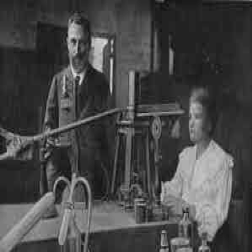Daw Ohn Kyi
B.Sc(Hons), M.Sc (Chem), Ph.D (Chem)
Dip in Eng:, Dip in Japanese
Lecturer & Head

Chemistry is a branch of science that has been around for a long time. In the 3rd century, Aristotle of ancient Greece declares the existence of only four elements: fire, air, water and earth. All matter is made up of these four elements and matter had four properties: hot, cold, dry and wet. In the 4th century, the two philosophers, Democritus and Leucippus proclaim the atom to be the simplest unit of matter. Matter was not infinitely divisible into smaller particles but instead consisted of fundamental, indivisible particles called atoms. Unfortunately, they did not have the technology to test their hypothesis. They would have been unlikely to do so in any case because the ancient Greeks did not conduct experiments or use the scientific method. They believed that the nature of the universe could be discovered by rational thought alone. John Dalton’s a new system of chemical philosophy, the first modern explanation of atomic theory. The history of chemistry in its modern form arguably began with the Irish scientist Robert Boyle, though its roots can be traced back to the earliest recorded history. Natural philosophers, Aristotle and Democritus, used deductive reasoning in an attempt to explain the behavior of the world around them.

In the 10th century, civilizations used technologies that would eventually for the basis of the various branches of chemistry. For examples, extracting metals from ores, making pottery and glazes, fermenting beer and wine, extracting chemicals from plants for medicine and perfumes, rendering fat into soap, making glass, and making alloys like bronze. In the 17th century, a synthesis of the idea of the deductive and the experimental disciplines leads to the development of a process of thinking known as the scientific method. With the introduction of the scientific method, the modern science of chemistry was born.
In 1871, periodic table was constructed by Dmitri Mendeleev. The periodic table is one of the most potent icons in science, lying at the core of chemistry and embodying the most fundamental principles of the field.
University of medicine, Taunggyi (UMTGI) was opened at 3rd October 2015. In UMTGI, the department of chemistry was composed of 18 staffs. At present there are 9 staffs who are working together for the departmental works. Ministry of Health and Sports supplied the requirements such as reference books, chemicals and laboratory apparatus to the department according to the academic year by year. At the beginning of the departmental operation in 2015, the department of chemistry from other medical universities also supplied to the laboratory apparatus. Therefore the departmental procedures operated its functions well without difficulties and hindrances according with the academic year.